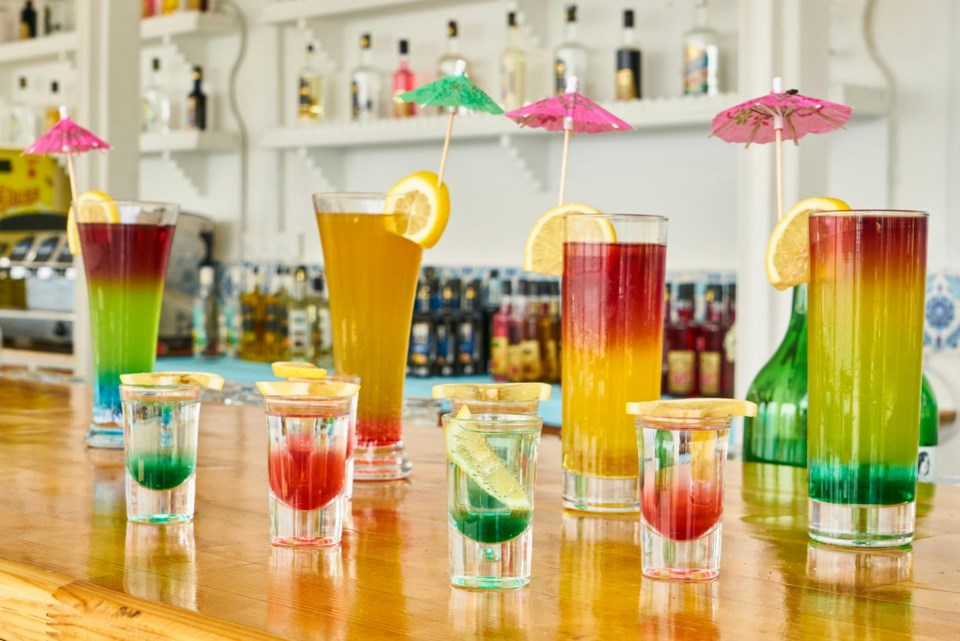After the conclusion of another Dry January, Longmont businesses are witnessing some notable shifts in consumer behavior, and establishments are keen to understand how Dry January impacts their operations and the broader alcohol industry in Longmont.
During this month of sobriety, and as this new annual practice gains attention, purchasing patterns can shed light on the changes observed in alcohol purchases and the growing demand for non-alcoholic alternatives.
According to Ross Hagen, co-founder of The Pumphouse Brewery, Dry January hasn’t significantly affected traditional alcoholic beer sales at their place of business. While January tends to be a slower month in general, Hagen noted that the inception of Dry January hasn’t brought about any noticeable changes in their sales patterns.
Despite the rising popularity of non-alcoholic beverages in recent years, Hagen hasn’t observed an increased demand for these alternatives during Dry January. While non-alcoholic beer sales have seen a gradual increase over time due to better quality products entering the market, Hagen indicates that January has not been a significant driver of this trend for them.
While they haven’t ventured into the mocktail scene due to a lack of customer demand, The Pumphouse Brewery continues to offer a diverse range of alcoholic beverages to accommodate varying preferences.
“Very rare are the requests for anything ‘healthy’ in the non-alcoholic beverage department, and we haven’t bought into the mocktail scene mostly due to lack of customer demand. We certainly do get orders for virgin margs or virgin mojitos, but they're very rare,” Hagen said. “We offer a full-service bar with an extensive liquor/cocktail list to supplement our overall offerings and to cater to folks who are not beer drinkers.”
Unlike The Pumphouse, Nels Wroe, co-founder of Dry Land Distillers, noted that they have witnessed a consistent and growing interest in zero-proof cocktails over the past two years. While Dry January brings this trend into focus, there isn’t a significant increase in sales of no/low-alcohol beverages for them specifically during January.
Contrary to the perception of a slowdown in sales during Dry January, Wroe observed that January hasn’t shown a precipitous drop in sales of high-alcohol content spirits at Dry Land.
“January is known to be a slow month for lots of us in food service,” Wroe said. “The past two Januarys haven’t shown the precipitous drop that can occur. In fact, February has been slower than January for the past couple of years. This is probably a factor of weather more than anything.”
In response to the growing demand for non-alcoholic alternatives, Dry Land is expanding its zero-proof options with a dedicated special menu. Wroe expressed pride in their creative mixologists, who craft complex and layered zero-proof cocktails that rival their alcoholic counterparts.
“We’ve got a fantastic team of creative mixologists who are designing complex, layered zero-proof cocktails that will launch in March,” Wroe said. “Cocktails and spirits are just one way we craft experiences for all of us. I hope the work we’re doing to promote music, art, friends and family takes center stage.”
According to Rick Hines, a manager at Hover Crossing Wine & Spirits, the impact of Dry January is evident. While regular customers maintain their normal shopping habits, occasional shoppers tend to make fewer visits to the store throughout January. However, the overall spending per customer remains consistent, with fewer new customers or online inquiries/purchases during this period.
One notable trend Hines observed is the exponential rise in sales of non-alcoholic products during Dry January. As more individuals participate in the month-long sobriety challenge, there is a heightened interest in non-alcoholic alternatives.
To accommodate participating individuals, Hover Crossing typically offers specific promotions and discounts on non-alcoholic beers, wines and other beverages. By marking down select non-alcoholic products, they aim to incentivize customers to explore and embrace these alternatives during the month of sobriety.
Hines mentioned their participation in organized tastings, held typically on Thursdays, Fridays and Saturdays, where the public can sample new or featured products. By focusing on items that fit the season or particular events, they try to cater to diverse preferences while staying attuned to consumer trends.
As Longmont navigates Dry January, local businesses are responding with improvement and flexibility when necessary. By embracing the growing interest in non-alcoholic beverages, they continue to serve the community while adapting to changing consumer preferences.



